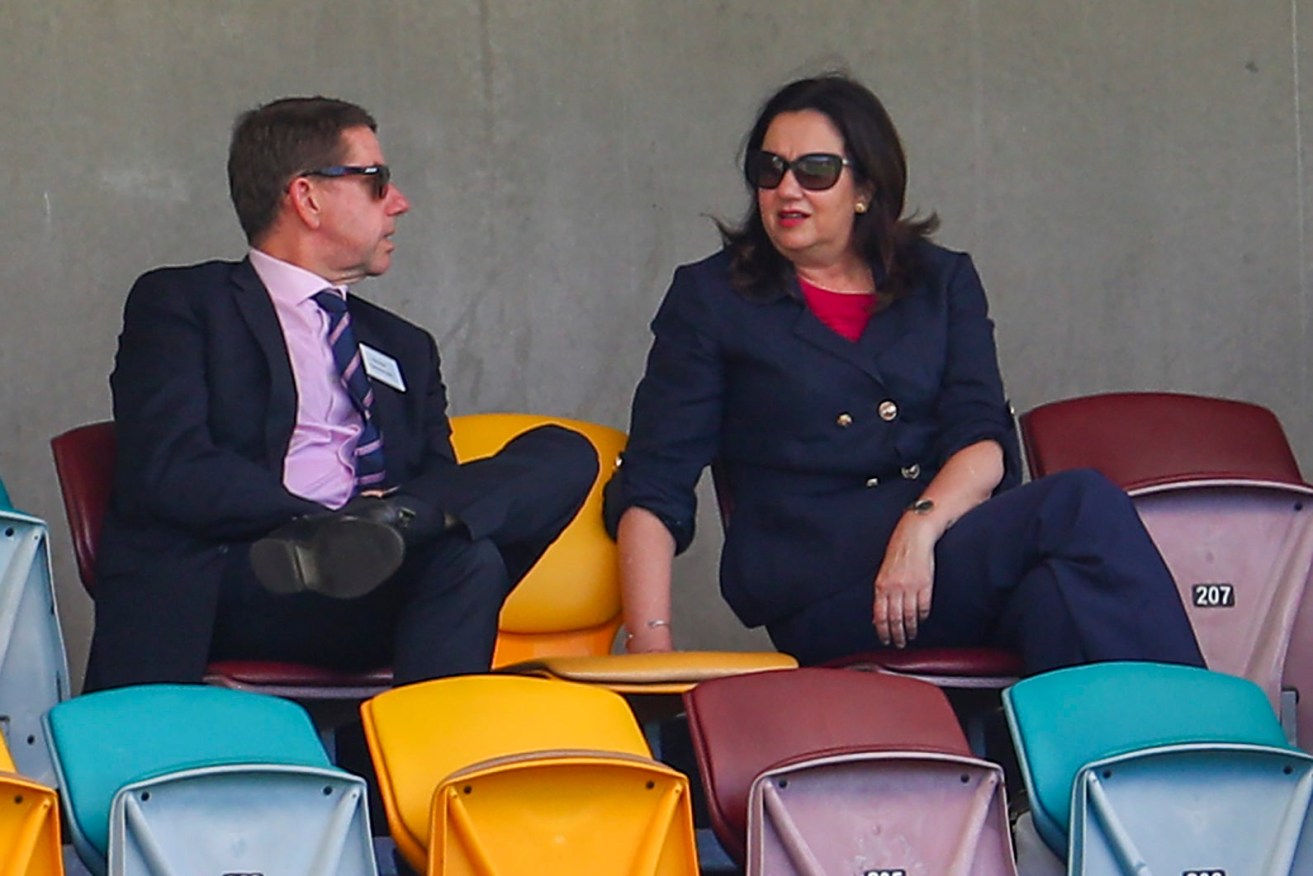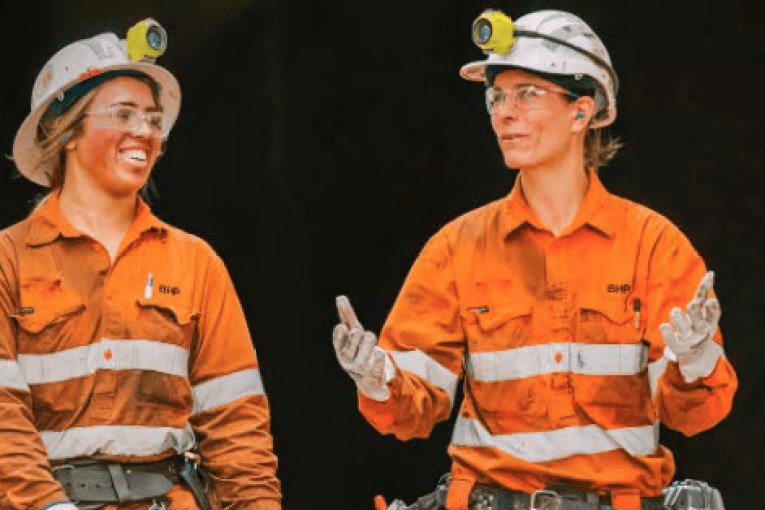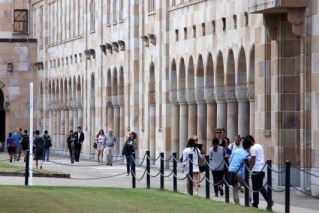State’s land tax grab like scrounging around the back of the couch for loose change
Treasurer Cameron Dick really must be short of money if he’s willing to weather the bad publicity over the State’s land tax changes writes Robert MacDonald


Are the Treasurer Cameron Dick and Premier Annastacia Palaszczuk searching behind chairs at The Gabba for more loose change? (AP Photo/Tertius Pickard)
The Queensland Government’s latest tweaking of its land tax laws really is bottom-of-the-barrel stuff.
Or more precisely, it’s scrounging-around-in-the-back-of-the-couch-looking-for-loose-change stuff.
And it really is loose change – at most, an extra $20 million or so of additional annual revenue – when compared with the Government’s current $75 billion annual budget.
But you can just imagine the high fives in Queensland Treasury when some bright spark came up with a new way to calculate land tax.
It’s a simple but audacious idea, and an Australian first.
From July next year Queensland land holders will have to declare to Queensland Treasury the value of any land they own in other states.
The total value of the portfolio will then be used to calculate the tax rate applicable to their land in Queensland.
The beauty of the idea, at least from Treasury’s point of view, is it will push lots of people who aren’t currently paying land tax over the current $600,000 tax-free threshold and push lots of people who are already paying tax into higher tax brackets.
Another $20 million of revenue just like that.
But the best bit is most Queensland taxpayers, and therefore voters, won’t feel any pain. Treasury calculates the new rules will affect only about 10,000 holders of Queensland land – most of them, hopefully, living interstate.
Clever, no? Well, no, not if you go by most of the commentary that’s appeared in recent days as awareness has spread of the new rules, which quietly became law in June.
Too clever by half is the common judgement.
“This sort of tax grab is exactly what you would expect from a Labor government – they never miss an opportunity to raise taxes,” New South Wales Finance Minister Damien Tudehope told the Australian Financial Review.
Tudehope says he’s seeking legal advice on whether the new scheme, which relies on the willingness of revenue offices in other states to share information, is even constitutionally legal.
Real Estate Institute of Queensland chief executive Antonia Mercorella described the new land tax regime as “unique” and “illogical”.
And who knows how much it might cost to administer?
Treasury says the new scheme will be largely managed from existing resources.
Good luck with that. All the new checking of records and notifying potentially affected landholders, as well as the following up and potential prosecution of non-compliant landholders will surely have to cost more money and staff.
But whatever the unknown cost and even if the returns are small beer, constitutionally risky and damaging to Queensland’s reputation as an investment destination, Treasurer Cameron Dick is defending his position by taking what he seems to see as the high road.
What he’s really doing, he says, is closing a loophole.
“It’s just not fair that interstate property speculators can buy properties in different states, avoiding the land tax threshold where people who invest in our state, pay more land tax,” he said.
What he’s complaining about is an investor with, say, a few million dollars to place, choosing to spread his or her risk in different states, while also taking advantage of tax-free thresholds.
Or perhaps he’s objecting to a Sydney resident who’s bought a holiday place on the Sunshine Coast.
All perfectly reasonable and legal transactions you’d think.
But Dick, having already dug a hole for himself, has kept digging by doing his best to blur the line between tax minimisation, which is legal, and tax avoidance, which isn’t.
When asked how he expected his new scheme to go down with other states, he said this:
“We work across the country with the Australian Taxation Office, all of the heads of the state revenue offices work together collaboratively on tax measures now, so we don’t anticipate any problems working with other states on this, unless they want to support a tax minimisation.
“And I don’t believe any Treasurer wants to support tax minimisation. We need a fair tax system in our state, we need a fair tax system in our country.
“And I think Queenslanders overwhelmingly want that. And that’s what I’ve pledged to deliver for the people of our state.”
So far, no other state government has declared interest in the Queensland model but who knows?
In the meantime, all this bad publicity for $20 million a year. The State Budget must be in far worse shape than we thought, if even the recent massive coal royalties windfall hasn’t been enough to plug the gaps.
But Dick could be playing a long game by establishing a precedent.
Perhaps his next move could be chasing down all those tax-minimising villains who choose to avoid the state’s luxury vehicle registration duty on vehicles above $100,000 by buying two cheaper cars.
It’s the same principle if you think about it – as absurd as it might be.












